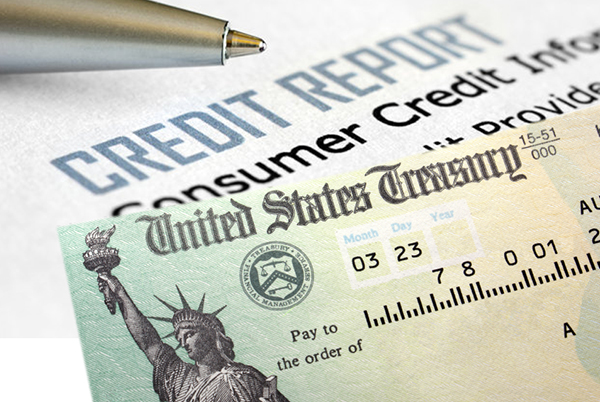
Why budget your paycheck today?
It is important to manage your money. It enables you to meet your monthly financial obligations on time. Managing your finances also help increase your capability to save for your retirement, education funds or by simply having extra sitting in the bank.
Budgeting your paycheck is an art. It is designing and planning the future of your wealth. Your financial plan is showing you the direction of your finances and will help you maneuver within your means.
The money that you own and can spend anytime is what you will be able to include in your budget. There are many ways to do your budget but I will show you the 4-steps on how to do budgeting effectively.
The 4-steps to budget your paycheck effectively:
Know how much is your paycheck, after tax deduction
Identify your fixed expenses
Identify your variable expenses
Monitoring and Strategy
Making a financial plan can be seen by many as a balancing act. These four steps on how to budget your paycheck will also help you design your safety nets while walking in a tight money rope. It will allow you to plan in advance if you need additional sources of income or if you need to make a temporary loan to make ends meet.
Without a written budget, you have a very high chance of overspending your money and not knowing what are the consequences that lies ahead. This is what we are trying to avoid here. We know that the effects of overspending or being cash strapped places a heavy toll in our health, wealth and relationships.
Step 1: How much money do you bring home?
You need to know how much income you earn in a weekly, bi-weekly or monthly basis. Knowing how much is your paycheck, after deducting taxes, is the first step in creating your budget.
If you have been earning for a period of time, you already have a fair idea of your average income. To the person who just got its first paycheck, your take home pay is the gross salary minus the federal and state taxes that are deducted from it. Your federal tax rate ranges from 15%-35%, depending on your income tax bracket. Your state tax deduction rate also depends on which state you live in.
Step 2: Identify Your Fixed Expenses
Fixed expenses are your monthly financial obligations that you need to pay on a consistent basis, whether you like them or not. Regardless of your financial activity, fixed expenses are awaiting payment from you every single month.
This means that even if you lose your job or your income, you are still obligated to pay them. During the recent economic recession, when millions of jobs were lost, the way of life of many Americans were affected drastically. Many could not afford to meet their ordinary fixed expenses anymore.
Suggested Examples of Fixed Expense:
House Rental or Mortgage – This is the monthly payment to your landlord or mortgagee
Car payment – It refers to your your monthly car amortization to your lender
Insurance – It includes insurance on your car, health, life and property
Electricity Bill – This is the electric power you use normally around your house. It includes the appliances, furniture and electronic gadgets you use at home
Water and Gas Bill
Telephone and Cellphone Bill
Cable and Internet
Medical and Prescriptions Costs – Your monthly medical needs that your doctor has prescribed for you.
School expenses, tuition fees and books – Yourself and/or your dependent’s K-12 and college school fees, supplies and books.
Grocery – Your food and basic household supplies.
Gas – This expense is a vital part of your car amortization expense. It cannot run without gas.
Fixed expenses are mostly fixed in dollar value on a month-to-month basis.This is not usually affected significantly even if your income increases or decreases at the end of your pay period.
Step 3: Identify Your Variable Expenses
Variable expenses are your expenses that you have full control. This type of bills are your spending habits that you can probably live with or without for a period of time.
Simply put, your controllable expenses are expenses that you can decide based on your wants and not on your basic needs. As brandrocker states, this behavior is also related with your happiness, passion, and impulse. You are likely to spend more during an emotional outbreak – both on its high and low end.
Your variable expenses is directly related to your income. As your paycheck increases, your variable expenses increases along with it. The same is true if your salary decreases, your controllable expenses will decrease too.
Step 4: Monitoring and Strategy
Now it’s time to make the computations on your budget. First, subtract your fixed expenses from your paycheck. The difference between your paycheck and fixed expenses will be the money available to pay for your variable expenses.
Next, you deduct your variable expenses. The difference from deducting your fixed and variable expenses from your income will either be a positive or negative number. A positive number will tell you that you have extra money to save or spend. A negative difference will tell you that you are in trouble.
Budget Example:
Paycheck $2000
Less: Fixed Expenses $1800
Difference $ 200
Less:Variable Expense 350
Shortage on paycheck ($ 150) based on budget
The concept of breaking down your expenses is to emphasize the fact that if your salary or paycheck cannot pay all your fixed and variable expenses, there is data available for you to analyze your spending pattern. You will be able to identify specifically which part of your budget is doing okay and which part has gone wrong.
You have two immediate options to solve your budget shortage or lack of money thereof. The first option is to increase your income or salary by the amount you need. Increasing your income is usually the first choice that you will make. This way, it doesn’t affect the dollar value you have placed on your budget’s fixed and variable expenses.
Strategies to increase your income:
Work overtime
Get a second or third job
Have a part-time work
Put up a garage sale
Start up a small business at home that you are passionate about. Adjust your schedule so that you can work on it at night, during weekends or on your free time.
Turn your hobby into an income generating activity. Usually, your hobby is your craft that you really enjoy doing and is good at it.
The second option is to reduce, constrict, eliminate or sacrifice your Variable Expenses. You can use the trial-and-error approach, adding or subtracting dollar amounts from one controllable expense to another until you arrive at your desired result. The bills you identified as variable expenses are the ones that you can manipulate to make your budget work.
Tips to manage your Variable Expenses:
Bundle your cable, television and telephone lines to get the cheaper upgrades for the services. Most of the these companies have business ties with each other that they offer cheap bundled products. Be aware that their promotion runs for 12 or 24 months only and you need to renew them to keep on paying the promotional rates.
Decide on your vacation plans based on three factors: Affordability, Worth and Priority
Affordability – The question is, can you afford this vacation? Have you been saving up for this trip? Don’t sacrifice your basic needs for a lavish activity that you cannot afford to pay.
Worth – Is the trip worth it? Don’t rely on what you read on the advertisements for your vacation destinations. Do your own extensive research before making your decision.
Priority – Do you have to go on vacation now, or next year, or the year after next? Which of the many vacation plans you have should you do first? Your trips should not have a negative effect in your financial health when you come back home.
Plan recreational activities inside somebody’s house. Getting together with friends and family to spend weekends in a house is cheaper than somewhere else.
Your budget does not have a mind of its own. You have to constantly check your actual expenses versus your budget. Monitoring your expenses ensures that your money is on the right track.
DMCC is a 501 (c)3 nonprofit organization committed to educating consumers on financial issues and providing personal assistance to consumers who have become overextended with debt. Education is provided free of charge to consumers, as well as personal counseling to identify the best options for the repayment of their debt. To speak to a certified credit counselor, call toll-free 866-618-3328 or email contact@dmcconline.org.
Reference : http://thegirls.hubpages.com/hub/How-To-Budget-My-Income



